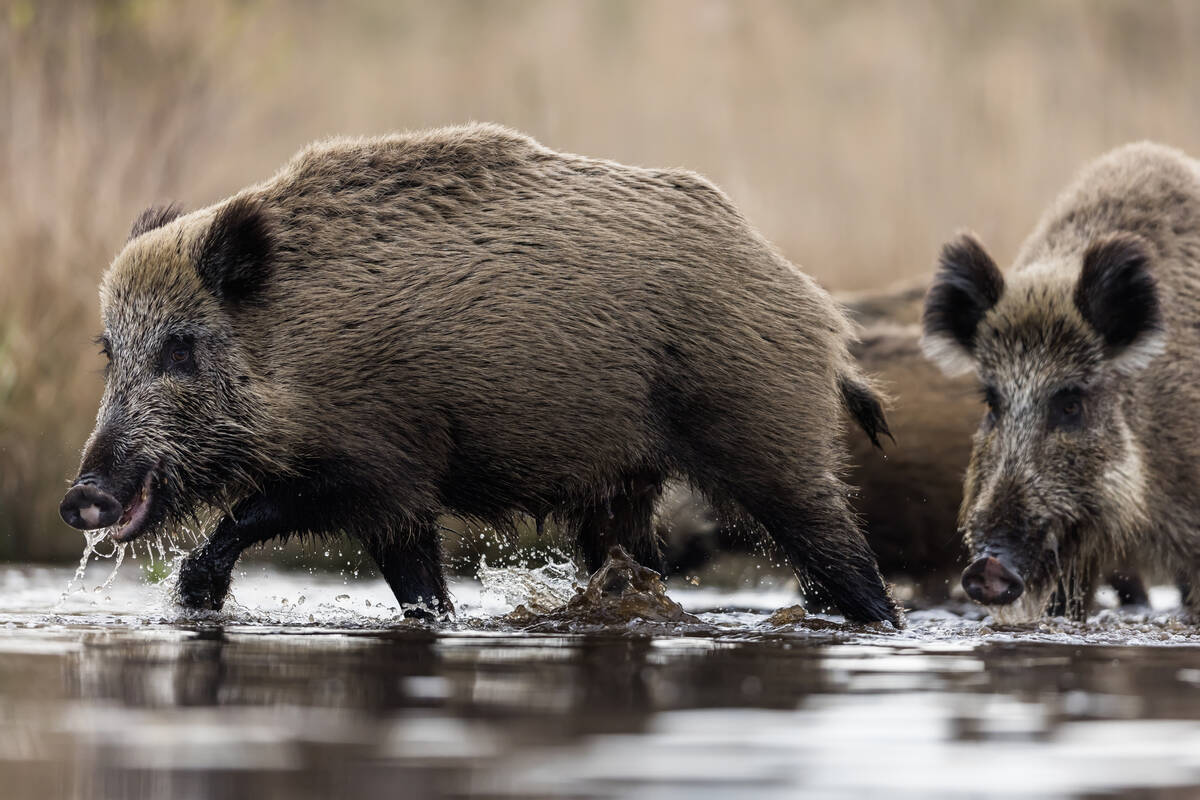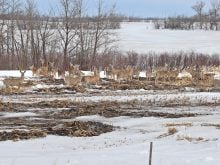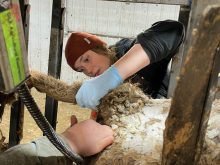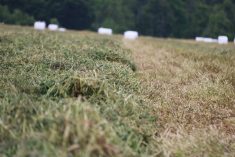CALGARY – The spectre of mad cow disease has reappeared in Great Britain, causing beef sales and prices there to crash. But Canadians need not worry about the safety of domestic beef, according to Health Canada officials.
Dr. Jamie Hockin of Health Canada in Ottawa said the bovine spongiform encephalopathy scare in Great Britain isn’t an issue in this country.
Canada is BSE free and does not import beef from Great Britain.
BSE is a terminal neurological disorder in cattle linked to a similar disease in humans called Creutzfeldt-Jakob disease. Some scientists believe people can develop the fatal disease by eating meat from cattle infected with BSE, also called mad cow disease.
Read Also

Manitoba bans wild boar possession
Manitoba has tightened the regulatory status of Eurasian wild boar in an effort to help fight back against invasive wild pigs.
No need to worry
Official statements from Agriculture Canada said Canadians shouldn’t worry about the safety of beef in this country.
No British slaughterhouse has been approved by Agriculture Canada to export beef to Canada. As well, Canada prohibits imports of fresh or frozen beef from any country with a reported case of BSE. No live cattle from any country considered to be BSE infected may enter Canada. No bone or meat meals may come into this country from any BSE infected area.
Ben Thorlakson, vice-president of the Canadian Cattlemen’s Association said: “We can’t emphasize enough that we have never had a case of a domestically raised animal in Canada contracting BSE. The single case we had was a case of a British imported animal,” he said.
Canada’s sole case was discovered in a British born Salers cow on a Red Deer, Alta. ranch in late1993. Agriculture Canada ordered the slaughter of the entire herd. All animals imported from Great Britain since 1982 were traced and eliminated and the carcasses incinerated.
Animals returned or destroyed
In total, 363 animals were killed and burned in special incinerators. All court cases against Agriculture Canada to stop the destruction of the British born animals were lost and the animals were either returned to England or destroyed under a court order.
Agriculture Canada compensated owners $2,000 per head and the cattle industry topped up the payout to $3,000.
Dennis Laycraft, executive vice-president of the Canadian Cattlemen’s Association, feels the action taken three years ago was justified.
“We’re in great shape here in Canada because of the tough choices we made back in 1993,” he said.
“We were criticized at the time for taking measures that seemed draconian. It was obviously the right course of action to take. We can live with the reassurance that there is no risk of the organism in Canada,” he added.
As well, cattle management is vastly different in Canada and animals are not fed animal protein products. BSE is suspected to come from scrapie-infected sheep offal that was turned into protein supplements and fed to cattle. Britain banned the practice in 1988.















